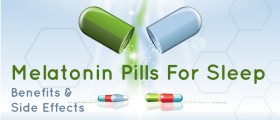
Information on Niacin
Niacin is a vitamin from the B complex and it is also sometimes referred to as Niacinamide or the vitamin B3. It is one of the important parts of numerous different functions in the human body. It is very efficient in maintaining skin health, improving the functioning of the digestive system and maintaining a proper emotional balance. When consumed in larger amounts it may be affiliated with certain undesirable side effects and unpleasant physical situations.
Side Effects of Niacin
One of the most common and most notable side effects of niacin is flushing. People who take doses of 75 mg and more usually experience dilation of the blood vessels, which ultimately results in this medical condition called niacin flushing. The flushing usually lasts for up to half an hour depending on one’s individual niacin threshold.
People who experience niacin flushing may also experience niacin rashes and niacin rashes, but these medical conditions are not serious in any way and should not cause any concerns. In order to avoid and prevent the occurrence of niacin flushes, one should always start off by taking smaller doses of niacin which may be increased in a gradual manner until the full dose is reached. If a person stops the regimen it needs to be restarted with the small doses all over again.
Certain types of anti-inflammatory medications may also be helpful in the prevention of niacin flushes. Aspirin and ibuprofen are among the most frequently used medications. They need to be taken with a meal in order to avoid stomach upset. Niacin should also be taken with food and it should never be taken with alcoholic or hot drinks because that may lead to flushing. There are numerous different types of niacin supplements with special formulation that minimizes the flushing.
These products may also be associated with certain side effects and they may be ineffective when it comes to the lowering of the levels of bad cholesterol in the blood and the induction of relaxation. Niacin may be associated with certain adverse side effects which may include vomiting, decreased blood pressure, nausea, diarrhea, bloating and flatulence.
Some rare cases have also included dryness of the skin, jaundice, scaliness of the skin, activation of the peptic ulcer, excessive pigmentation, blurred vision, and liver disorders as side effects of niacin supplements. Niacin overdoses can lead to moderate side effects which are aforementioned. Niacin is toxic only when taken in large doses.

















Your thoughts on this
Loading...